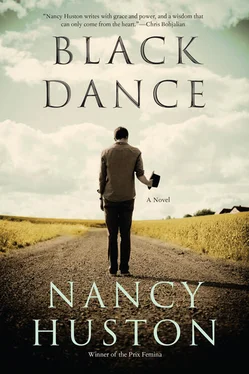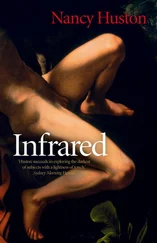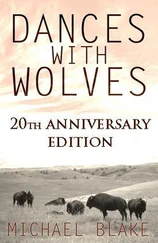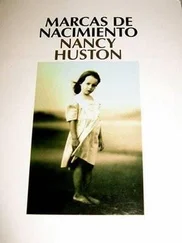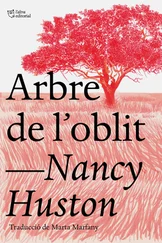No, scrap that. Can’t use the Forte de Copacabana scene. It would be our first departure from this film’s guiding principle — always follow one of the three main protagonists.
Hmm.
You don’t know what happened, do you, Astuto? Eh, my love? And if you don’t know, I’m afraid I can’t help you, because whatever happened it killed me and we haven’t been able to give each other new information since.
Was Eugénio among them? He told the police he wasn’t, but you’ll never know for sure. Did his pals claim to be selling sex or drugs? I handed them my wallet at once. Did Eugénio offer to sleep with me, to sell me his body? Did his friends ask for my credit card numbers or did they ask how much I’d pay them to sodomize me? I handed them my wallet at once. Was I called names, mocked, humiliated, slapped, jostled and raped before I died, or did they kill me right off the bat? Did Eugénio sneak up on me from behind and stick a gun in my back the way the British soldier did to your grandpa Neil on Saint Stephen’s Green in 1916? Did he pull the trigger, or did one of the other kids? Did anyone hear the gunshot? I doubt it. Remember how we used to tense up every time we’d hear loud retorts coming from the favelas? And someone told us it was fireworks. In Rio, loud explosions mean fun and games; M16 assault rifles are quick and quiet. Did I put up a fight, instantly collapse in a heap like Neil’s cousin Thom, a scarlet stain gradually spreading on the back of my pink suit? I handed them my wallet at once.
It doesn’t much matter, Milo marvel. It’s up to you. All the words are yours, anyhow. All the voices have been yours since the beginning. They’ve always been your consolation and your salvation. Whispering tales in your ear as you waited in the closets of your childhood. Making up dialogue as you watched TV movies in the living room at night. Whistling in the dark. .
• • • • •
Neil, 1939
What shall I do with this absurdity—
O heart, O troubled heart — this caricature,
Decrepit age that has been tied to me
As to a dog’s tail?
A dark, late-December afternoon, up in Neil’s study. Forehead propped on left hand, baby finger holding in place the spectacles, which, if left to themselves, tend to slide down his nose, Neil is committing to memory what he considers to be William Butler Yeats’s greatest poem, “The Tower.” The bard died nearly a year ago, and Neil is still in mourning for him. He peruses his poems and plays, relives their momentous encounter at Ballylee, and tries to believe, appearances notwithstanding, that he, Neil Kerrigan alias Neil Noirlac, will one day make his literary mark.
The poem conveys both Yeats’s despair at being no longer young and raunchy, and his resolve never to espouse the easy virtues championed by society. He says that despite the encroachments of old age, he’ll remain true to his wild, poetic visions. . until they, too, are dissolved by time and death. When he wrote “The Tower” in 1926, Willie had barely crested sixty. Neil himself is only forty-seven, but having just learned that he is to become a father for the twelfth time and a grandfather for the first (Marie-Thérèse, who married Régis at age seventeen last summer, informed her parents this morning, if not joyfully at least firmly, that they were expecting a baby next June), he feels decrepit age tied to him, too, as to a dog’s tail. When will my life begin? he moans in petto. Is it worse to have known grandeur and lost it, like Willie Yeats, or, like me, never to have known it at all?
Marie-Jeanne’s voice comes lilting up the stairs: “Neil! Are you coming down, my love? It’s going on five o’clock, Christmas dinner is almost ready and you haven’t yet chopped the firewood!”
CUT to Neil entering the woodshed in which he used to experience excruciating literary frustration, before he was given a room of his own in which to experience it. He chops. And chops. And chops. He now has the chopping-wood part of being Tolstoy down to a fine art.
CUT to the Noirlac dining room, early evening. Fire crackling in the fireplace, candlesticks, mistletoe, etc. Assembled around the table is the family au complet : children of all ages (we won’t waste time giving them names the spectators would instantly forget) and four adults (including young Régis, who has brought a bottle of wine to celebrate their pregnancy announcement), to say nothing of the two new humans in the making, as yet invisible. . To contemplate the amount of life he has engendered even as he was busy writing no books makes Neil faintly nauseated. (And he can’t even blame the former for the latter, Tolstoy having fathered thirteen children.)
When all are silent, Marie-Jeanne lights the central candle of the Advent wreath.
“It’s your turn to say grace, Neil, darling.”
“ God is good and God is great, grub is ready, time we ate . . Sorry, just joking. We are gathered together this evening to. . to celebrate. . the birth of. . of. .”
The image of yet another baby coming into the world, even if it is the Son of God, all but makes him gag.
“Santa Claus,” pipes up Declan, already a mischief-maker at twelve.
“Declan!” says Marie-Thérèse. “Hold your tongue, that’s blasphemy! You’ll go straight to Hell!”
“Go on, darling. .” Marie-Jeanne urges Neil.
“I’d like for everyone to close their eyes, and observe one minute of silence for the European continent, again in the throes of a terrible war.”
“Bang, bang!” says a younger boy.
“ Boom!” says an older one.
“It’s not the right moment, Neil,” Marie-Jeanne admonishes him gently. “Please. Christmas dinner with your children is not a good time to talk about war.”
Neil raises his voice: “You’re right, Marie-Jeanne. There are plenty of other things I could talk about. Like how come Finnegans Wake is deemed a masterpiece whereas my own opus of mixed languages, written twenty-five years earlier, bit the dust. Or how come the Unionists won by an overwhelming majority in Ulster, obliterating all hope of a merger between Northern Ireland and the Irish Free State. Or how come. .”
“Amen,” says Marie-Jeanne, cutting him off.
Echoed by Marie-Thérèse and Régis in quick succession, her Amen goes hop-skipping around the table until all mouths have uttered it, either in French or in English, except for the very smallest mouth, which has learned no language yet.
“Would you like to cut the turkey?” says Marie-Jeanne, holding her annoyance in.
And the dinner commences as best it can. Bowls of vegetables circulate, but Christmas cheer does not.
CUT to an hour or so later. Close-up on the nearly empty bottle of wine. Only the two men have been drinking, and, neither being accustomed to alcohol, both are feeling its effects: Régis is more outspoken than usual and Neil has grown downright boorish.
“If we’re not careful, the foreigners will take over all our land, and I mean all of it! You’re a big reader, Mr. Noirlac, but I bet you haven’t read Menaud Maître-Draveur , by Félix-Antoine Savard? That’s exactly what’s gonna happen around here! Those Englishmen, they do as they please! They decide what they want and they take what they want and they do exactly what they want!”
“That’s right,” mutters Neil. “The Brits are foreigners here, whereas the French go way back, don’t they? There was no one here before they came, was there? Yes, I skimmed through that racist, colonialist, repetitive piece of shite by Savard, and could not help remarking that the word Indian was mentioned nowhere in it, not even once. . whereas the word Quebec is itself an Indian word! Oh, Régis, I’m so tired of this cant! I’ve been through it before! Pearse and Connolly were using the self-same patriotic drivel back in 1914, before you were so much as a glimmer in your daddy’s eye! Hey, we stole this land first! : a one-sentence summary of the French Canadian nationalist movement. Same thing in Ireland, go back far enough.”
Читать дальше
